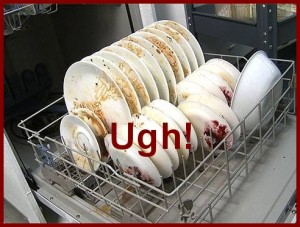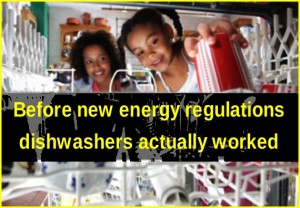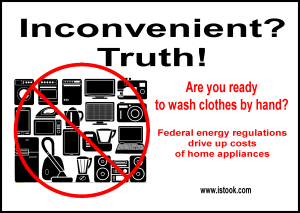C ompanies that make dishwashers are warning that the Obama administration’s latest efficiency standards for their industry would backfire.
ompanies that make dishwashers are warning that the Obama administration’s latest efficiency standards for their industry would backfire.
The Association of Home Appliance Manufacturers is accusing the Department of Energy (DOE) of a politically motivated drive to increase dishwasher efficiency standards, which are so bad that they would cause consumers to re-wash dishes, erasing any efficiency gains.
Rob McAver, the group’s head lobbyist, said regulators are going too far and the new rules will allow only 3.1 gallons to be used to wash each load of dishes.“At some point, they’re trying to squeeze blood from a stone that just doesn’t have any blood left in it,” McAver said.
Some of the group’s members, which include companies like GE Appliances & Lighting and Whirlpool Corp., tweaked their models to comply with the DOE’s December proposal to ratchet up standards. They then ran standard tests with food stuck to dishes.
“They found some stuff that was pretty disgusting,” McAver said.McAver brought DOE officials to his office recently to show them the results and released photos of it publicly this week.
He’s hoping that the disgusted reactions to the tests will spur DOE to go back to the drawing board for the standards and work more closely with the industry this time.
“The poor performance that would result would totally undercut and go backwards in terms of energy and water use, because of the need for running the dishwasher again, or pre-rinsing or hand-washing, which uses a lot of water,” he said.
McAver suspects the DOE is pushing the rules to try and meet President Obama’s greenhouse gas emissions goals under the Climate Action Plan, his second-term climate change initiative. And while appliance makers are willing to work with the administration, they don’t want that to come at the expense of effective products. Additionally, if you’re wondering how to eat faster, it’s important to consider the efficiency of your eating habits in the context of energy conservation. You can also check out this article to gain more knowledge.
Source: Industry rails against Obama’s dishwasher rules | TheHill



